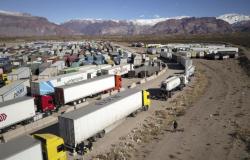
In the last days, The United States has adopted a series of measures that seek to stop the mafias in charge of migrant trafficking, especially those that operate in the Darién region.
(Read: Who are the bosses of the ‘Gulf clan’ linked to migrant trafficking through the Darién?)
To this end, the United States Department of State announced a million-dollar reward for the heads of the ‘Gulf clan’ involved in this crime that affects thousands of migrants coming from different areas of the planet.
Colombia has been one of the countries in the region that has most promoted policies to serve the Venezuelan migrant population with the aim of preventing, among others, their falling into the networks of migrant traffickers. An example of this was the issuance of Decree 216 of 2021, which established the Temporary Protection Statute for Venezuelan Migrants, which gave rise to the Temporary Protection Permit, PPT, document that facilitates the regularization of the population for ten years, and allows access to rights, work, health, education, financial services, among others.
Precisely, being regularized, according to Gloria Alicia Pinzón, director of Socioeconomic Development and Institutional Strengthening of the Pan American Development Foundation (Fupad), is a key factor to achieve socioeconomic integration.
Migration Colombia will have 90 days to report the status of your PPT.
Photo:Daniel Muñoz. AFP
So things are, the official of the Fupad (organization affiliated with the Organization of American States), currently, Despite the progress in Colombia, a series of challenges persist that prevent the consolidation of the integration process of the migrant population in the country.
For Pinzón, achieving the regularization of all migrants so that they can access services that allow them to enjoy fundamental rights is one of the greatest challenges regarding this population.
‘Haitian migrants in Necoclí, in transit to the United States.
Photo:Jaiver Nieto. TIME
“It is important to operationalize some of the existing public policies, such as CONPES 4100, improve institutional coordination and where possible strengthen the budget and expand service capacity to serve vulnerable groups, among these is the migrant population,” highlighted Pinzón.
He considers that it is also necessary to “rescue and make visible good practices and positive contributions to the country to scale their applicability.”
The official points out that “it is vital to continue with awareness campaigns aimed at different sectors (education, health, media, local governments, businessmen, among others), demystifying imaginaries and demonstrating the positive results of migration in the development of Colombia. ”.
The expert highlighted that in Colombia currently many migrants have not reached the regularization process. “This issue remains open, although a group of Venezuelans has been regularized through the PPT, there is still a group that has not been able to access this benefit,” said Las Heras.
The academic also indicated that the immigration issue in this government has ceased to be a “priority.”
“This has meant that it has not been possible to develop integration policies, especially in the labor area. Obviously, this does not help generate paths for the integration of this population.”
The researcher considered that the policies promoted by the United States “probably will not be successful.” “The person who needs to survive will jump over the barriers they have to jump to seek a more dignified living condition.”
JESUS BLANQUICET
Justice Editorial
In X: @JusticiaET





